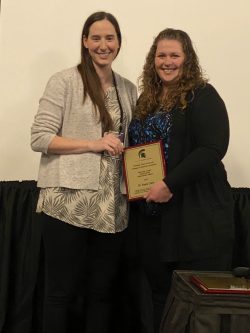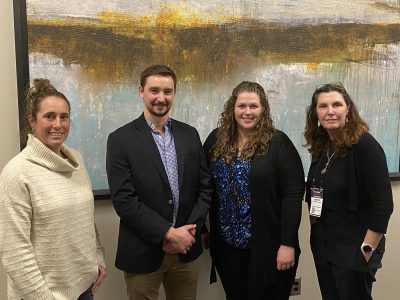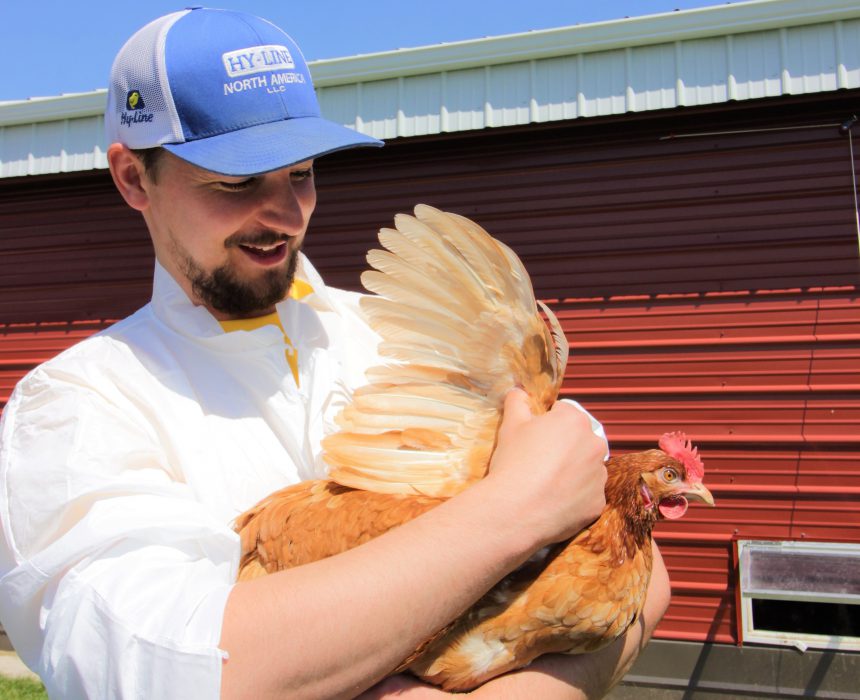The MSU College of Veterinary Medicine’s Department of Large Animal Clinical Sciences has awarded Dr. Rachelle Bennecke with the Birth of a Purebred Award and Drs. Kayla Clark and Alexander Strauch with Early-career Food Animal Veterinarian Awards. These veterinarians received their awards at the Department’s Large Animal and Equine Practitioners’ Reception on Friday, December 3 at 6:30 p.m. during the 2021 Michigan Veterinary Conference.
“We were fortunate to work with the Food Animal Practitioners Committee of the Michigan Veterinary Medical Association to select the recipients. Still, it was incredibly difficult to select the awardees this year. A lot of amazing practitioners were nominated. These awards are the highest honor bestowed by the Department upon Michigan-based food animal veterinarians. It was so exciting to honor our fellow veterinary professionals and the critical work they do in ensuring food security and safety. I am really glad I got the opportunity to honor these amazing vets,” says Dr. Annette O’Connor, chair and professor of Epidemiology for the Department.





Meet the Awardees



About the Awards
The Birth of a Purebred Award is presented to an alumnus of the College or a private practitioner who works primarily in food animal medicine and has demonstrated zeal for advancement in clinical and/or production medicine, as well as excellence in student mentorship. Specifically, the award recognizes Michigan-based food animal veterinarians who have made outstanding and sustained contributions to the Michigan food animal industry through their development of production medicine programs; support of the College’s education, research, and/or outreach missions; training and mentoring of new food animal veterinarians; and leadership and volunteerism in organized veterinary medicine and/or broader society.
The Birth of a Purebred Award was initiated following the donation of a statue of the same name by Drs. Richard Short and Thomas Glasser of Bad Axe, Michigan. The statue is located in the foyer area of MSU’s Veterinary Medical Building.
The Early-career Food Animal Veterinarian Award is presented to Michigan-based food animal veterinarians who have made significant contributions to the field of Production Animal Medicine through their commitment to continuous improvement of skills and knowledge, innovative approaches to everyday problems, contributions to training future agricultural workers, and leadership and volunteerism in organized veterinary medicine and/or broader society.
The Early-career Food Animal Veterinarian Award was established in 2021.
For more information about the awards and awardees, contact the MSU College of Veterinary Medicine’s Department of Large Animal Clinical Sciences.
